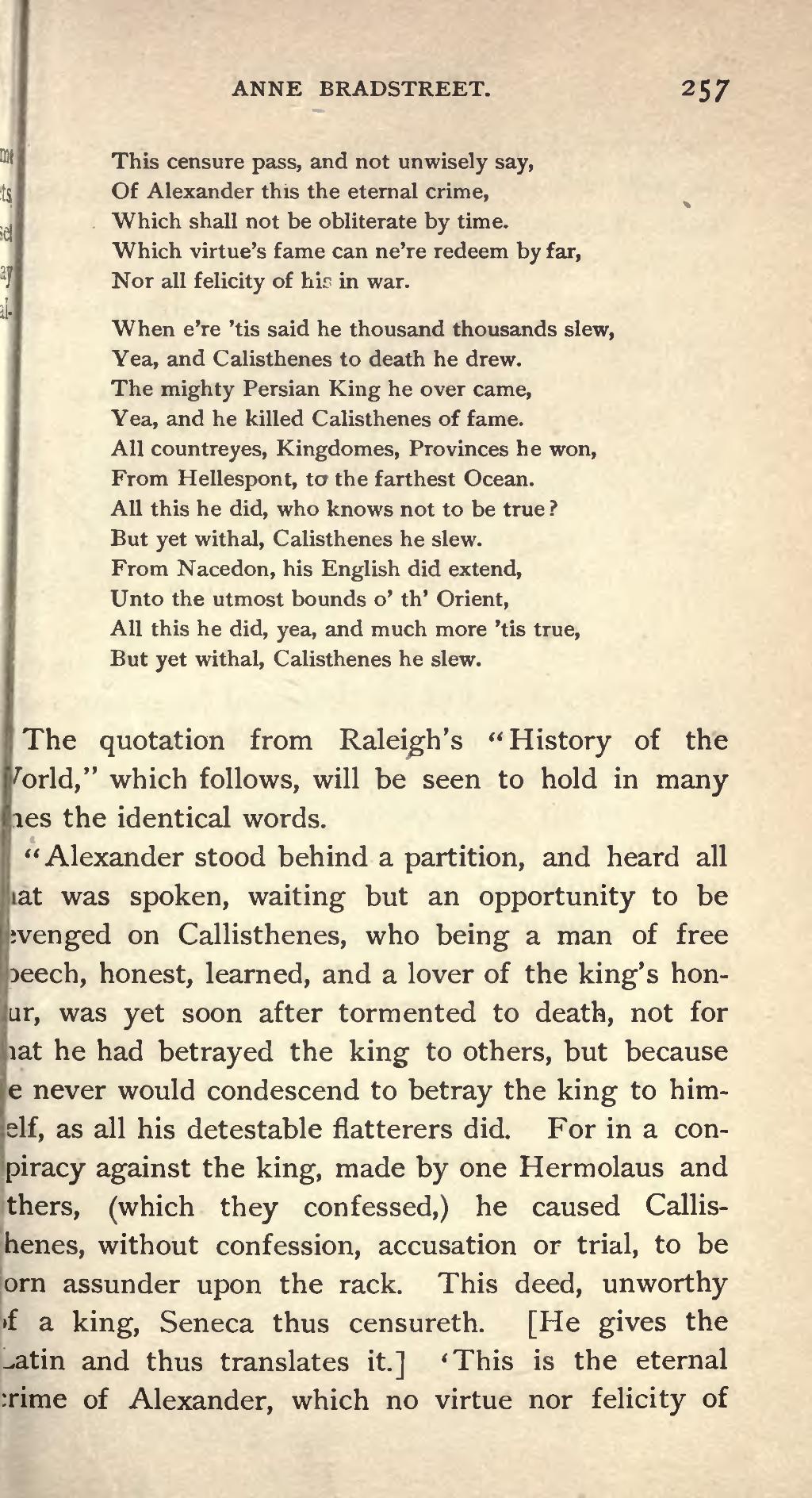This censure pass, and not unwisely say,
Of Alexander this the eternal crime,
Which shall not be obliterate by time.
Which virtue's fame can ne're redeem by far,
Nor all felicity of his in war.
When e're 'tis said he thousand thousands slew,
Yea, and Calisthenes to death he drew.
The mighty Persian King he over came,
Yea, and he killed Calisthenes of fame.
All countreyes, Kingdomes, Provinces he won,
From Hellespont, to the farthest Ocean.
All this he did, who knows not to be true?
But yet withal, Calisthenes he slew.
From Nacedon, his English did extend,
Unto the utmost bounds o' th' Orient,
All this he did, yea, and much more 'tis true,
But yet withal, Calisthenes he slew.
The quotation from Raleigh's "History of the World," which follows, will be seen to hold in many lines the identical words.
"Alexander stood behind a partition, and heard all that was spoken, waiting but an opportunity to be revenged on Callisthenes, who being a man of free speech, honest, learned, and a lover of the king's honour, was yet soon after tormented to death, not for that he had betrayed the king to others, but because he never would condescend to betray the king to himself, as all his detestable flatterers did. For in a conspiracy against the king, made by one Hermolaus and others, (which they confessed,) he caused Callisthenes, without confession, accusation or trial, to be torn assunder upon the rack. This deed, unworthy of a king, Seneca thus censureth. [He gives the Latin and thus translates it.] 'This is the eternal crime of Alexander, which no virtue nor felicity of
